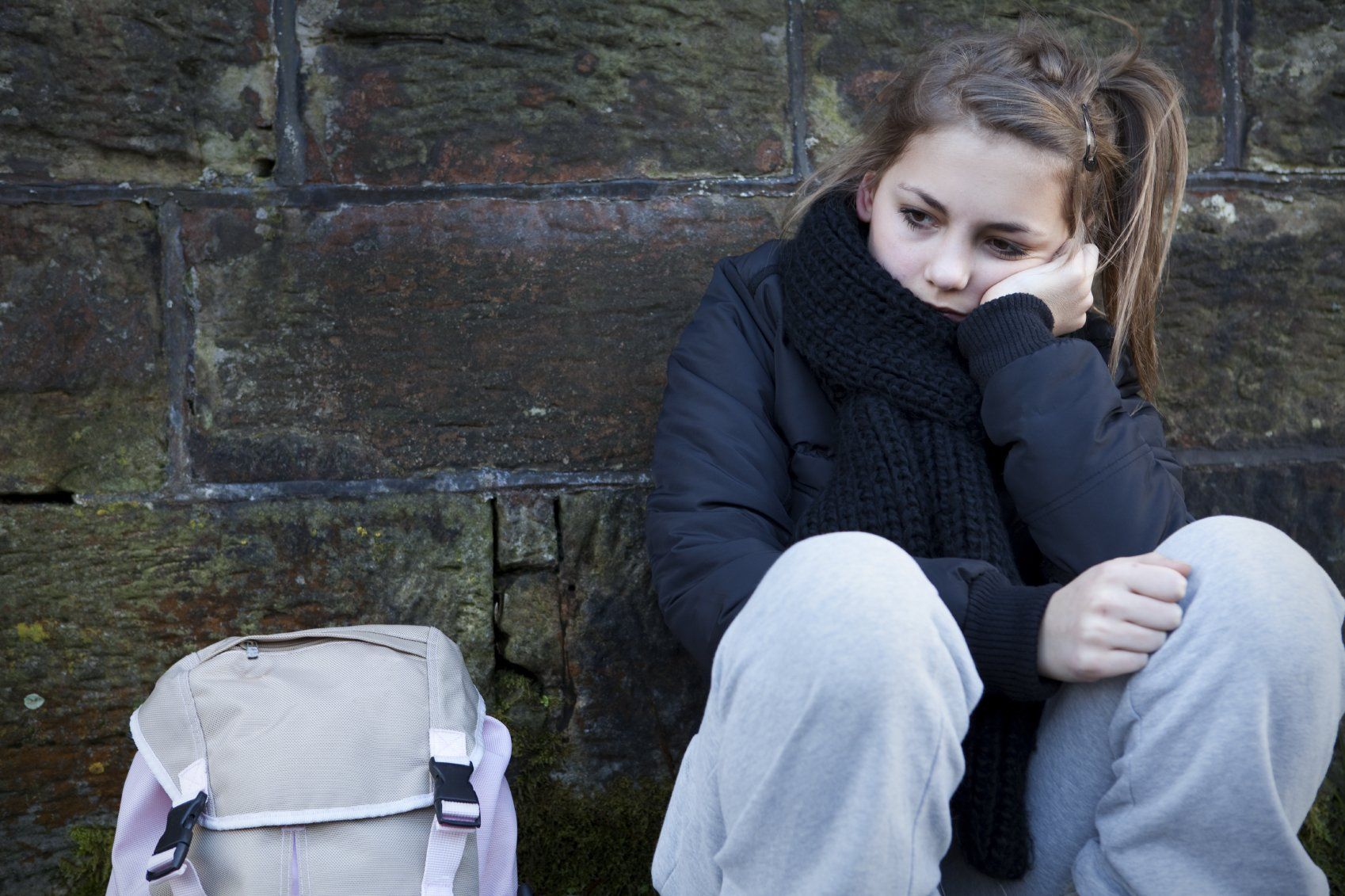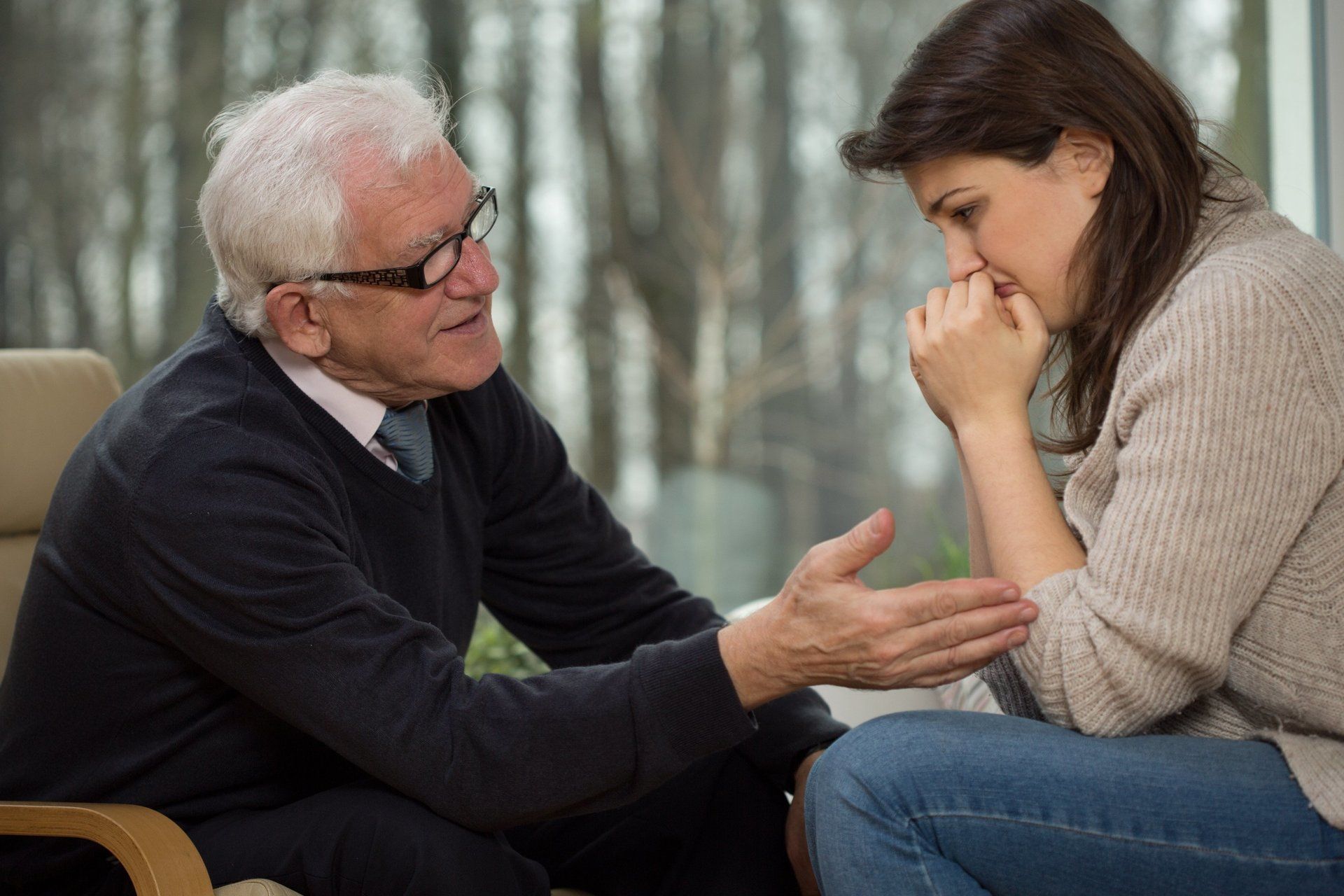Out Of Treatment

Childhood should be a time of innocence, wonder, and discovery. It's a period when we learn about ourselves, others, and the world around us. However, for some, childhood is marked by a profound absence – not of physical needs, but of emotional nurturing. Growing up in an emotionally neglectful childhood can have far-reaching effects on one's emotional well-being, relationships, and overall development. In this blog, we will explore the experiences and challenges of individuals who have navigated the shadowed terrain of emotional neglect and how they can recover from the experience. Understanding Emotional Neglect Emotional neglect refers to the absence of emotional support, validation, and responsiveness from caregivers during childhood. It can manifest in various forms, such as: Lack of emotional availability: Parents may be physically present but emotionally distant or preoccupied, failing to provide the emotional connection a child needs. Unresponsiveness to emotional needs: Parents may not recognise, acknowledge, or respond to their child's emotions, leaving the child feeling unheard and invalidated. Inconsistent affection: Some children grow up in homes where love and affection are doled out sporadically, leading to confusion and insecurity. Minimisation or denial of feelings: In emotionally neglectful households, children's feelings are often belittled, dismissed, or ignored, leading to emotional suppression and difficulty expressing emotions later in life. The Impact of Emotional Neglect Growing up in such an environment can have profound and lasting consequences: The message the child receives through this is that their feelings are not important, or they need to be a certain person in order to receive positive contact from their parents. The child will develop an understanding that they are not acceptable in some way, and this can take root in our minds leading to adulthood. This is where you will see things like perfectionism, imposter syndrome, people pleasing, workaholism, addiction issues, anger issues, eating disorders and more. Emotional detachment: Children may learn to suppress their emotions as a coping mechanism, leading to emotional detachment and difficulty forming close relationships. Low self-esteem: The absence of validation and support can erode a child's self-worth, leading to feelings of inadequacy and self-doubt. Difficulty expressing emotions: Adults who experienced emotional neglect may struggle to identify and express their emotions, hindering their ability to connect with others. Relationship challenges: Emotional neglect can contribute to difficulties in forming and maintaining healthy relationships, as individuals may fear vulnerability and intimacy. Coping and Healing While growing up in an emotionally neglectful childhood can leave deep scars, it's essential to remember that healing is possible. Here are some steps individuals can take to cope and heal: Self-awareness: Recognizing the impact of emotional neglect is the first step toward healing. Acknowledging your experiences and emotions is a crucial part of the journey. Seeking therapy: Therapy, such as Psychotherapy can help you understand yourself better and realise that your responses and reactions to things, whilst unpleasant, are often a normal response to an abnormal experience in childhood. With better self-awareness you can then start changing the behaviour. It’s a bit like giving up smoking once you understand how bad it is for you. Self-compassion: Practice self-compassion by treating yourself with the same kindness and understanding you would offer a friend. It's essential to release self-blame and shame. This can be one of the harder things to overcome but it one of the most important. It often feel wrong or risky to adopt a self-caring attitude and this is because, early on your brain made the connection that this is who I am, I am nit good enough and if I allow myself to think I am I will stop trying. Building support networks: Surrounding yourself with empathetic and understanding friends or support groups can help counter the isolation that often accompanies emotional neglect. Learning emotional intelligence: Developing emotional intelligence skills can help individuals better understand and express their feelings, enhancing their ability to connect with others. Therapists are great at helping you learn a more health emotional language. Establishing boundaries: Learning to set healthy boundaries is crucial in cultivating relationships that respect your emotional needs and well-being. Conclusion Growing up in an emotionally neglectful childhood is a challenging experience that leaves deep emotional scars. However, with self-awareness, therapy, and support, individuals can heal and learn to navigate the shadows of their past. By acknowledging the impact of emotional neglect and taking proactive steps toward healing, one can pave the way for a brighter and emotionally fulfilling future. Remember, it's never too late to start the journey toward emotional well-being and healthier relationships.

Childhood bullying is a serious issue that can have lasting effects on a person's life. The impact of bullying can vary and factors such as race, sex, religion, and ethnicity can impact it in different ways. These factors often influence how bullying is dealt with and perceived. For instance, studies have shown that minorities are more likely to experience bullying and its long-term effects. Additionally, gender and religion can affect how individuals respond to bullying and whether they seek help or not. Children will, quite often, either not tell anyone or stop telling anyone due to being handled poorly by the people they tell. On top of this if there is an ethos at home that we “be brave” “be kind” or there is merit in suffering then there is an added feeling of shame or inadequacy that further compounds feelings of loneliness. When we try to create safe and inclusive environments, this is not just an exercise in political correctness. It is the nascent stage of tackling the poor mental health that we see so prevalent today. This includes educating children, parents, and teachers about the harmful effects of bullying and providing them with resources to address it. Schools repeatedly deal with the issue of bullying poorly. Bullying does not look good for schools, and I believe this is why they are usually not good at dealing with the issues robustly. To have any culpability means admitting that the school has an issue and not just the child reporting the issue. I have lost count of the iterations of people telling me that they (the victim) were either moved from the class or isolated from the class as a way of dealing with being bullied, essentially it is a covert way of victim blaming. Bullying is a pervasive issue that affects millions of children worldwide. It can take many forms, including physical, verbal, and social aggression, and can occur in various settings, such as schools, neighborhoods, and online spaces. The long-term effects of childhood bullying are well documented, and they can have significant impacts on individuals' physical and mental health, social relationships, and academic and professional success. Mental Health Issues: One of the most well-known long-term effects of childhood bullying is the development of mental health issues. Individuals who have experienced bullying in childhood are more likely to experience depression, anxiety, and CPTSD in adulthood. Studies have also found a link between childhood bullying and an increased risk of suicide in both adolescence and adulthood. Physical Health Issues: Bullying can also have physical health consequences. Research has shown that childhood bullying is associated with an increased risk of obesity, cardiovascular disease, and other chronic health conditions in adulthood. This may be due to the chronic stress that bullying causes, which can lead to inflammation and other physiological changes in the body. Social Relationship Issues: Bullying can also have lasting effects on social relationships. Children who have experienced bullying may struggle with developing healthy relationships with others, including romantic relationships and friendships. This can lead to feelings of loneliness and social isolation in adulthood. This isolation and lack of confidence in people places you at increased risk of secondary bulling and or domestic violence in adult life. Academic and Professional Success: Bullying can also have an impact on academic and professional success. Children who experience bullying may struggle with academic achievement and may be more likely to drop out of school. In adulthood, bullying victims may have lower levels of education and earn lower incomes than their peers who did not experience bullying. Substance Abuse: Studies have found that individuals who have experienced bullying in childhood are more likely to engage in substance abuse in adulthood. This may be due to using drugs or alcohol as a coping mechanism to deal with the emotional pain caused by bullying. Cognitive Issues: Childhood bullying may also have cognitive consequences. Research has found that individuals who have experienced bullying in childhood may have difficulty with attention and memory tasks, as well as executive function skills such as planning and decision making. Physical Pain: Bullying can also lead to physical pain in adulthood. Studies have found that adults who were bullied as children may experience chronic pain, including headaches and musculoskeletal pain, gastro-intestinal issues such as IBS. Increased Risk of Victimisation: Finally, childhood bullying may increase the risk of victimisation in adulthood. Individuals who have experienced bullying may be more likely to be victimised in other contexts, such as in the workplace or in their personal relationships. This can take the form of secondary bulling or domestic violence. Seeking Professional Help: If you or someone you know has experienced childhood bullying and is struggling with the long-term effects, it's essential to seek professional help. Therapy, counselling, and other forms of treatment can help individuals process their experiences and develop coping strategies to manage the emotional and physical consequences of bullying. And don’t be afraid to involve the Police, bullying is illegal and everyone deserves to feel safe. Whether at work or at school make sure you understand the Policies in place to help tackle bullying, and reach out to places such as Anti-Bulling Alliance or Act Against Bullying who have lots of information on what to do if you are being bullied. Even if the bullying took place a long time ago but you still feel the effects there is a lot of information online regarding “Adult Survivor Syndrome” In the first instance, tell someone. Don't stay silent and be alone with the issue. This is the first step in effectively dealing with a pernicious problem.

Trauma can be felt for generations to come. The scars left by war, genocide, and other forms of violence can be passed down from parents to children, creating a cycle of trauma and suffering that can be difficult to break. There is an insidious nature of intergenerational trauma. The effects of trauma can be passed down in subtle ways, such as through parenting styles, cultural practices, and even epigenetic changes that can alter gene expression. This means that trauma responses can be deeply ingrained in individuals and communities, making it difficult to identify and address. Furthermore, the impact of intergenerational trauma can be felt not only on an individual level but on a societal level as well. Communities that have experienced trauma may struggle with issues such as poverty, substance abuse, and domestic violence, perpetuating a cycle of disadvantage that can be difficult to break. This highlights the importance of addressing the root causes of trauma, including social inequality, discrimination, and conflict. Children are defenceless against the complexity of hardship that a lot of families face currently but going back in time it was, ostensibly, a lot harder. If you consider the Victorian era, which spanned from 1837 to 1901, the treatment of children was vastly different than it is today. Children were often seen as miniature adults, and as such, were subjected to harsh working conditions and strict social norms. For many Victorian children, life was difficult from the moment they were born. Infant mortality rates were high, and those who survived were often subject to neglect and abuse. Many babies were sent away to be raised by wet nurses, leaving them without the nurturing care they needed during their formative years. As they grew older, many children were sent to work in factories or mines. These jobs were often dangerous and physically demanding, and many children suffered serious injuries or even death as a result. They were also subjected to long hours and low pay, leaving them with little time or energy to pursue an education or enjoy childhood activities. Even those who were fortunate enough to attend school often faced difficult conditions. Classrooms were often overcrowded, and teachers were expected to maintain strict discipline. Punishment was often severe, and children who misbehaved could be subject to physical abuse or humiliation. Shaping children through fear and humiliation has a profound detrimental effect on children. Global atrocities such as slavery or the Holocaust have had a profound and lasting impact on our world, shaping the course of history and leaving deep scars on the human psyche. These atrocities have caused immeasurable suffering, trauma, and loss for countless individuals and communities, and their legacies continue to be felt today. Slavery, which has existed in various forms throughout history, has been particularly devastating in the context of the transatlantic slave trade. From the 16th to the 19th century, millions of Africans were forcibly taken from their homes and transported to the Americas to work as slaves, enduring brutal conditions, abuse, and exploitation. This system of forced labor not only stripped individuals of their dignity and freedom, but also changed people’s feelings about their identities and understanding of their cultural history. The Holocaust, one of the darkest chapters in human history, saw the systematic murder of six million Jews by Nazi Germany during World War II. This genocide, motivated by anti-Semitic ideology, also targeted other marginalized groups such as Roma people, LGBTQ+ individuals, and people with disabilities. The Holocaust represents the ultimate failure of humanity to uphold the value of human life and dignity, and serves as a reminder of the dangers of intolerance and hatred. There are countless of these mass tragedies, for instance the Rwandan genocide, which saw the mass killing of approximately 800,000 Tutsis and moderate Hutus by Hutu extremists in 1994; the Cambodian genocide, in which an estimated 1.7 million people were killed by the Khmer Rouge regime in the 1970s; and the Syrian civil war, which has resulted in the displacement of millions of people and ongoing humanitarian crises. Herero and Nama genocide, which occurred in what is now Namibia between 1904 and 1908, during German colonial rule. The German forces implemented a brutal campaign of violence and forced labor against the Herero and Nama peoples, resulting in the deaths of an estimated 65,000-80,000 people. This genocide is considered to be one of the first of the 20th century and had long-lasting effects on the people of Namibia, including the loss of land, resources, and cultural heritage. The legacy of this tragedy is still being felt today, and efforts are ongoing to address the injustices committed and promote reconciliation These events have had a lasting impact on the individuals and communities affected, as well as broader political and social dynamics. They have had far-reaching consequences for our world, impacting not only the individuals and communities directly affected, but also shaping broader social and political dynamics. The legacy can be seen in the ongoing racial disparities and inequalities that persist in many parts of the world, as well as the complex cultural and historical dynamics. They also have a profound impact on global consciousness and shared history and it is so important to remember and inform how we move forward but if you consider that right now there is a conversation happening about bringing back Jim Crow Laws in Mississippi then it is apparent we are not completely learning from our mistakes. The conversation has reached the House and they want to take it to the Senate to get passed. This is devastating. If you have spent a lifetime not being able to trust your environment and all you have known is pain and suffering, how do you go on to show compassion. If you know by the mere fact that, the way you look or what you think or who you love can make you a target that could end your life, what would you tell your children in order to help them survive a world you perceive as brutal and dangerous. If we ever want to solve the problems we face now with the mental health crisis and the poor mental health of our children and adults then we need to go to the inception of where it starts and think about how we see childhood and what we are creating for our future.